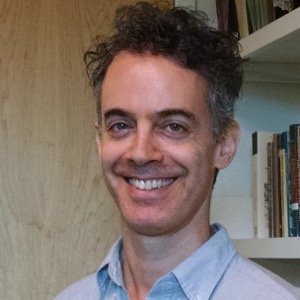Daniel Hershenzon
Associate Professor
I am trained as a historian of early modern Europe and the Mediterranean. My research focuses on early modern Spain and its links to the Mediterranean, the relations between the Spanish Monarchy, Morocco, and Ottoman Algiers, slavery and captivity, religion and violence, material culture, and Jewish history. My first book, The Captive Sea: Slavery, Communication, and Commerce in Early Modern Spain and the Mediterranean (University of Pennsylvania Press, 2018), explores the connected histories of early modern Spain, Morocco, and Ottoman Algiers, and by extension the entangled histories of enslaved Christians and Muslims. The book argues that piracy, captivity, and redemption shaped the Mediterranean as an integrated space, socially, culturally, and economically. In-depth audio and other interviews about the book are now available online at the Historically Thinking Podcast, the Historias Podcast, the Ottoman History Podcast, and The Spain North Africa Project. The Captive Sea has won Honorable Mention in the Mediterranean Seminar First Book Prize in 2021, and has been awarded the 2019 Best First Book Prize for books published in the field of Iberian History by the Association for Spanish and Portuguese Historical Studies, and the Sharon Harris Book Award by the University of Connecticut Humanities Institute.
My new book project, tentatively titled Captive Objects: Religious Artifacts and Piracy in the Early Modern Mediterranean follows the circulation of Jewish, Muslim, and Christian religious objects—Qurans and bibles, prayer shawls, crosses, images of Christ and the Virgin Mary, and relics—which circulated by the thousands in the early modern Mediterranean. This mobility was largely a byproduct of piracy, which between 1500 and 1800 was the fate of 2 to 3 million persons and intertwined Spain, Morocco, and Ottoman Algiers. This project argues that disparate religious artifacts trapped by the plunder economy acquired a common identity as contentious objects. As religious communities articulated conflicting claims over them in learned discourses and in practice, they became religious boundary markers, defining group membership and determining these groups’ interactions and relations. Captive Objects has been awarded a fellowship at the Princeton Institute for Advanced Studies for 2019-2020 and an ACLS Frederick Burkhardt Fellowship for Recently Tenured Faculty for 2020-2021.
For copies of publications, check out Daniel Hershenzon Academia.edu webpage

| daniel.hershenzon@uconn.edu | |
| Phone | +1 860 486 9243 |
| Office Location | Oak 231 |
| Office Hours | Monday/Wednesday 10-11 |